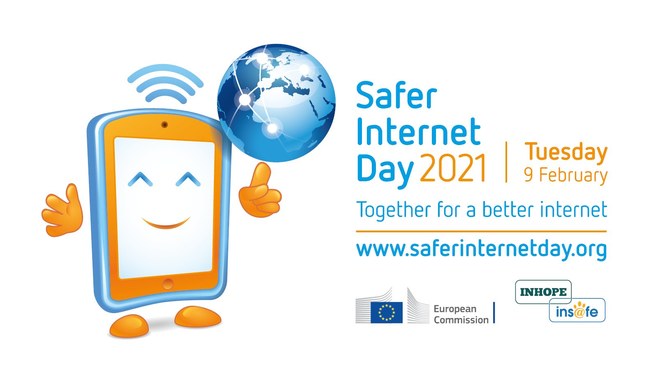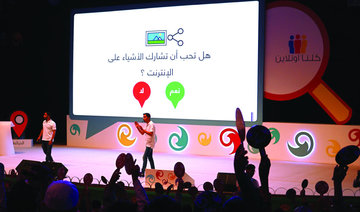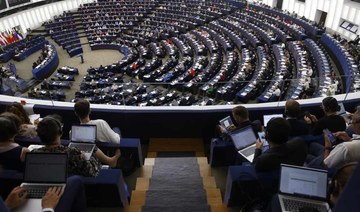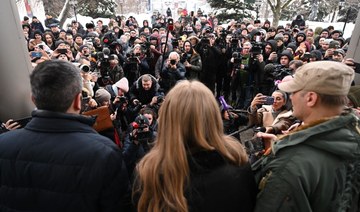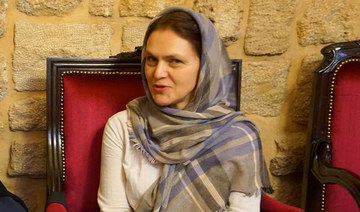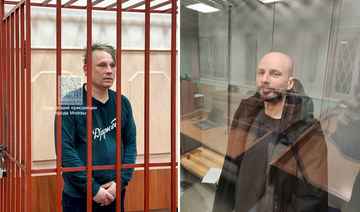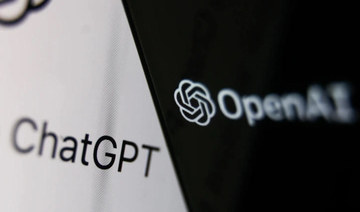RIYADH: Celebrated on Feb. 9, Safer Internet Day (SID) started in 2004 as an initiative of the EU-funded SafeBorders project. Since then, it has grown into a landmark annual event marked by more than 170 countries and aims to promote the safe and responsible use of online technology by people around the world.
Raising awareness about the safe use of social media platforms has been a key focus of SID activities with particular attention being paid to concerns over political manipulation, cyberbullying, and harassment.
Here is how some of the world’s biggest social media companies joined in this year’s event:
Globally, Facebook launched a short film on the importance of safety on the platform, with tips and resources to help parents support their children in staying safe while online.
The company also extended its digital citizenship and wellbeing program, Get Digital, to Israel, Turkey, and Russia, and as part of the European Commission’s Better Internet for Kids (BIK) virtual summit showcased its trust, transparency, and control (TTC) labs youth design guide.
In the Middle East and North Africa (MENA), Facebook has launched a series of initiatives and will be rolling out its Get Digital program in the region over the coming months.
In order to help journalists, Facebook has partnered with Arab Reporters for Investigative Journalism (ARIJ) for its I Will Not Stay Silent project to train writers to combat harassment.
The firm is also working with the International Center for Journalists (ICFJ) to roll out a six-week digital security webinar training series in Arabic as part of social media solutions training for journalists in the MENA region. The series will run through February to March and those participating in all six live webinar sessions will receive a project completion certificate.
Facebook will also be issuing a 34-page journalist safety guide in English and Arabic explaining how writers can secure information and their social media accounts, while protecting their sources and contacts.
In Jordan, Facebook partnered with the Jordan Open Source Association (JOSA) to produce a digital safety guide and toolkit allowing users to better control unpleasant experiences on the platform.
Shahed Al-Hindi, Facebook’s human rights public policy manager for the MENA region, said: “This campaign and partnership with JOSA are not just a one-off moment, but a continuous process to drive awareness about online safety among MENA users and educate them about the various resources we have in place that they can use to protect themselves.”
The resources, available in Arabic and English, can be found on the Facebook safety center and mini site developed by JOSA.
In Egypt, Facebook announced a partnership with the National Council for Women (NCW), which included the launch of a women’s safety resources package offering cartoons and videos to help educate female users of the platform.
“Keeping people safe on Facebook is really important to us. However, it is a sad reality that there will always be a small number of malicious people who are intent on harming others, online and offline.
“To be clear, we don’t allow that kind of behavior on Facebook and we take quick action when it’s flagged to us,” added Al-Hindi.
“The safety of Twitter and the health of the public conversation is one of our highest priorities,” said Camino Rojo, the head of public policy, government, and philanthropy in a blog post.
In the last year, Twitter had made “strides” in tackling abusive content resulting in a 105 percent increase in the number of accounts locked or suspended by the platform for violating its rules.
On Feb. 9, Twitter also launched a special emoji triggered by the hashtags #SaferInternetDay and #SID2021 in 18 languages.
Throughout the month, the social media company will work with its network of safety partners to amplify their guidance and continue the pro-bono Ads for Good program.
It also ran safety training and presentation sessions and participated in events to commemorate SID on four continents.
In the MENA region, Twitter ran an online safety workshop with the UAE TRA Virtual Academy to educate users on multiple elements of online and internet safety, ranging from digital footprint controls to media information literacy and security best practices.
Snap Inc.
Messaging app Snapchat introduced a new feature called Friend Check Up that prompted Snapchatters to review their friends list and check it was made up of people they still wanted to be connected to. The prompt showed up as a notification in users’ profiles.
The feature will start to be rolled out in the coming weeks and months for Android users first and then iOS users.
The new feature is part of a bigger campaign that Snap kicked off in January on global Data Privacy Day with the goal of further integrating online safety and privacy education into Snapchat.
Snap has also partnered with ConnectSafely in the US and Childnet in the UK on filters that will swipe up to additional safety resources from each organization, and it has expanded its safety linkups with organizations such as Crisis Text Line, Shout, The Trevor Project, and Mind Up.
TikTok
TikTok launched a dedicated safety campaign #BeSafeBeHappy by teaming up with some of the biggest creators who shared how they use TikTok’s safety features to take them to their online happy place.
Regional creators participating in the campaign include Saudi-based gamer, Thamer, who encouraged his followers to report videos that were deemed unsafe, Egypt’s Youssef Magdy who showcased how to report negative comments, Egyptian yoga instructor Vatika who expressed her love for TikTok and acknowledged her supporters and fans, and Ahmad Aassi from Lebanon, who created a video showing users how to report and block people who were misusing the app.
Rami Zeidan, head of video and creative at TikTok, said: “We have a responsibility at TikTok to provide our users with a safe and positive environment and this is something we don’t take lightly.
“The #BeSafeBeHappy campaign is yet another step to raise awareness of our safety features and ensure our users continue to experience and spread joy on the platform.”








